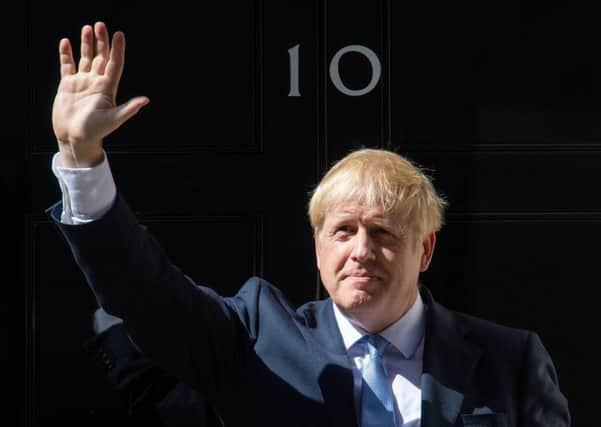Sam McBride: Surprisingly, Boris Johnson may help restore devolution in Northern Ireland


The new prime minister, who is not trusted by many unionists and anathema to many nationalists, is a far less consensual figure that either Theresa May or David Cameron.
There is little to suggest that he is the sort of leader who will fly to Belfast to bury himself for days in what from London must seem like the dreary detail which separates the DUP and Sinn Féin.
Advertisement
Hide AdAdvertisement
Hide AdAnd his apparent willingness to accept a no-deal Brexit will alarm many people in Northern Ireland – regardless of their constitutional preference.
But three elements of the new regime – and the crucial Northern Ireland bill which became law on Wednesday – make it easier for the DUP and Sinn Féin to compromise in order to restore Stormont, if that is what they now want to do.
Firstly, the very fact that Mr Johnson is disliked by Sinn Féin’s supporters makes it easier for the party to make what has been one of its central arguments in favour of the compromises necessary for devolution – that the alternative is much worse.
Secondly, Mr Johnson has this week set out a radical approach to government – typified by his appointment of the maverick brains behind Vote Leave, Dominic Cummings, to a senior role in Downing Street – which suggests that he may move towards direct rule after two and a half years of an empty Stormont.
Advertisement
Hide AdAdvertisement
Hide AdUntil now, there has been no credible threat that Sinn Féin’s decision to walk out of Stormont would have the major constitutional consequence of devolved power leaving the island of Ireland to return to London. Suddenly, that possibility looks realistic.
Thirdly, the sacking of Karen Bradley as Secretary of State brings a new dynamic to the talks. The parties did not respect, let alone fear, her and she had arguably become an impediment to progress.
In Julian Smith, Mr Johnson is despatching to Belfast someone who is a more senior government figure, someone who knows – but does not always please – the DUP and someone who from his years in the whips’ office is skilled in the Machiavellian dark arts which may be necessary to prod suspicious interlocutors towards agreement.
All of those factors come on top of the passage of the potentially seminal Northern Ireland (Executive Formation etc) Bill into law.
Advertisement
Hide AdAdvertisement
Hide AdCommons amendments legalising same-sex marriage and moving Northern Ireland’s abortion law from being the most restrictive in the UK to the most liberal will come into effect unless an Executive is formed by 21 October.
Although the DUP still opposes same-sex marriage, it has all but accepted that it is now inevitable, regardless of whether or not Stormont returns. But the party is under pressure from pro-life groups and some of its members to restore devolution order to block abortion, or at least secure a compromise short of full decriminalisation.
The party leadership has given no hint of acceding to those requests and did not heed calls, including from DUP MLA Jim Wells, for it to threaten to bring down the government if the bill was not pulled. But if it wants to get back to Stormont, as was demonstrably the case last year when the leadership was on the brink of a deal with Sinn Féin, it now has a more compelling argument for its traditionalist members.
However, if an Irish language act is the necessary compromise, could the DUP sell it? And if reversing abortion reform or delaying gay marriage is part of the compromise for Sinn Féin, can it sell that?
Advertisement
Hide AdAdvertisement
Hide AdA more fundamental question for Sinn Féin will be whether it really wants Stormont back if there is a no-deal Brexit, as looks more likely. It may be blamed if devolution could help mitigate some of the fallout but it opts out. Yet if a chaotic period boosts support for Irish unity, does it really want to mitigate that?